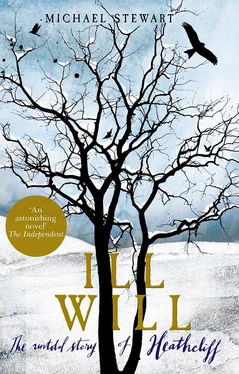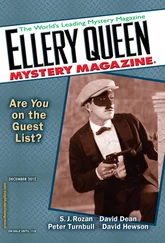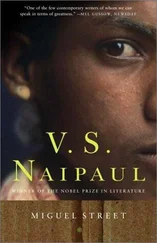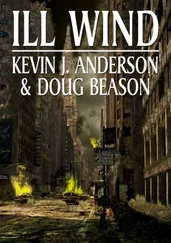1 ...6 7 8 10 11 12 ...15 ‘My money’s on Jethro.’
‘Mine’s on Sticks.’
‘Tha’s more a dunghill than a gamecock.’
Some men shuffled the bales of hay and straw so that an enclosed area was formed and the birds were released. The men jostled to get the closest. I watched the fight from some distance. The men were positioned at the furthest extremes of the makeshift arena. Before the fight the birds were slapped and their feathers ruffled to agitate them. At first the men held their birds by their back ends, lifting them up and down and towards each other. The spectators shouted encouraging words. The men approached each other so that the birds, still being held, could peck and squawk at each other to further agitate them. Then when the birds were fired up, the men let them go and they flew at each other. The feathers on the backs of the birds’ necks were stiff like a turned-up collar and what was left of their combs were gorged. Their tail feathers stood proud and they held their chests out. They faced each other, their necks protruding. The black one bobbed his head and the brown one followed. I imagined these cocks as me and Hindley. With me as the black one and Hindley the brown.
Then the brown one flew up, making a piercing squawk, striking out with his spurs. The black one retaliated by jumping over his opponent. They turned to face each other again. There was a stand-off before the birds squared up once more, strutting and sticking their chests out, clucking and squawking. A flapping of wings and the birds flew up. The black one was on the back of the brown, but then the brown bird flipped over and the table was turned. More strutting, then they squawked and pecked some. They started to spar more aggressively and it was hard to follow the action. There was screeching and blood. Feathers and dust. I couldn’t make out the details. The men cheered on.
I noticed Dick Taylor, standing apart from the men, not joining in or cheering, but smiling inwardly. His black eyes seemed blacker in his red face. Unlike the other men, his pleasure didn’t seem to come from the game itself. His joy was derived from the suffering of others. After a time, the commotion was over but I couldn’t tell who had won in the chaos and confusion. Both birds seemed to be bleeding badly. Neither was the victor. Dick was still smiling as money changed hands, the smile only a skull makes from the grave. I realised it was a different kind of battle I wanted with Hindley. Where the scars are worn on the inside. Whoever the loser and whoever the victor, their cuts would heal in time and they would be ready to fight again. But I didn’t just want Hindley dubbed, I wanted to watch his very spirit crushed.
With the exception of the red-skinned Dick, and the politically minded Sticks, the farm labourers were a simple enough bunch of men. As long as they had work during the day, ale and bread at night, card games and somewhere to lig down, they seemed agreeable. We all slept together in the barn, with a chaumin dish burning flaights. The arrangement being not that much more than I’d found in the hog barn, but I couldn’t really complain. It was dry and it was warm. We ate together in the kitchen in the morning. Cages hung from the ceiling beams with songbirds trapped inside. A blackbird, a nightingale and a throstle. An oak chest, a chest of drawers, a long table that accommodated us all around it, and chairs for us to sit on. The floor and tops were strewn with bowls and tins, jugs and mugs, syrup tins and porridge thibles. In the back kitchen the food was stored, beer brewed and oatcakes baked. The farmer’s wife was helped out by Mary, the peevish wife of Dick.
I decided I would stay here for a while. The work suited me and I enjoyed the company of this Sticks character. Or at least he didn’t lock me in with the beasts or take a whip to me. I kept my head down, sold my ale rations to the other men, and saved my pennies. I was biding my time until I had enough bunce to move on to Manchester town, maybe even Liverpool. I would save four pounds. That seemed a sum that would keep me from destitution and set me up wherever I found work next. I calculated that I could be back on the road again in eight weeks, if I kept clean.
We worked all week on the wall and by the Sunday it was finished. We stood back and admired our work. The wall was good and strong. No wind and no beast would break it. I looked around at the landscape all around me. Meadow, pasture and field enclosed by stone walls and beyond that moorland. Walls that reached up steep cloughs and bridged over fast-flowing becks. Walls that marked who owned what and marred the land they squatted upon.
It was the end of the first week and the farmer insisted that I accompany him to church. As you know, Cathy, I am no lover of the chapel, but it was easier to keep the peace. He loaded up a coach with the members of his family and me and Jethro and a few others followed on foot. Sticks refused to accompany us, saying that he could worship his God any place he liked. He didn’t need churches. When we got to the place of worship, we were expected to walk up the church and bow to the parson. The squire and other parish notables sat in state in the centre of the aisle and erected a curtain around their peers to hide them from the vulgar gaze of the likes of me and Jethro and the other men. The minister talked of virtue and charity. But I had neither virtue or charity, just bile and contempt. God was not my friend. I sought only the company of the devil. Indeed, I had much in common with him, for had he not been cast out of heaven and was he not now wandering the earth in search of his revenge?
Days went by, then another week. I had saved a full pound as I’d planned to do and was a quarter to my goal. There were more walls to build and we worked steadily every day, taking it in turns, using hammer, wedge and chisel to break stones in the morning, then hand and eye to build the wall in the afternoon. The next day, we’d swap it around. It helped to break up the monotony of the job. I mostly partnered with Sticks and we grafted with me listening and him talking. His conversation ranged from the political to the personal within the same breath.
‘Have you heard of the tithe awards, laa?’
‘What’s that?’
‘A tenth of produce given to the rector of the land. One pig in ten, one egg in ten, one cow in ten. But the mill dun’t have to give a tenth of their produce. What do you think about that then?’
I shrugged.
‘I tell yer, it’s unfair is what it is.’
‘I suppose it is.’
‘We’ve got to fight for a fairer system, laa. No one is going to make the world fairer, only us. By hard graft. You’ve got to fight for everything you get in this life. Even love. My first love was Mary. Fourteen years of age. I was seventeen. What a beauty. Like a painting. At the very first sight I was taken, I remember it like this morning. I had a feeling so strong for her that I forgot what I was supposed to be doing. I just wanted to be with her all day, morning, afternoon and evening. As soon as I’d finished my work I’d be there, like a dog. It was just like in the songs, when a temptress puts a spell on a man.’
Oh, I knew that feeling all right, Cathy.
The wall-building was slow but satisfying work. I liked holding the stones in my hands, turning them over. I liked their weight and hardness. Something that was solid and dependable. And it was good to stand back at the end of the day and look over what we’d achieved.
When the wall was done there was more work for me. Dan had stable work I could do and to which I was accustomed, and plough work to which I was not but soon became so. Every morning I rose before four of the clock and would go into the stable. There I would cleanse the stable, groom the horses, feed them, then prepare my tackle. I would breakfast between six of the clock and half past the clock. Then plough until three. I took half an hour for dinner, attended to the horses until I don’t know what hour, when I would return for supper. After supper, for extra bunce, I would either sit by the fire to mend the shoes of the farmer’s family or beat and knock hemp or flax, or grind malt on the quern, pick candle rushes, or whatever the farmer bade me do until eight of the clock. Then I would attend to the cattle. There was not much time for leisure, but the pennies were piling up and I kept a bag of them hidden in the woods in the hollowed-out trunk of an elm.
Читать дальше












